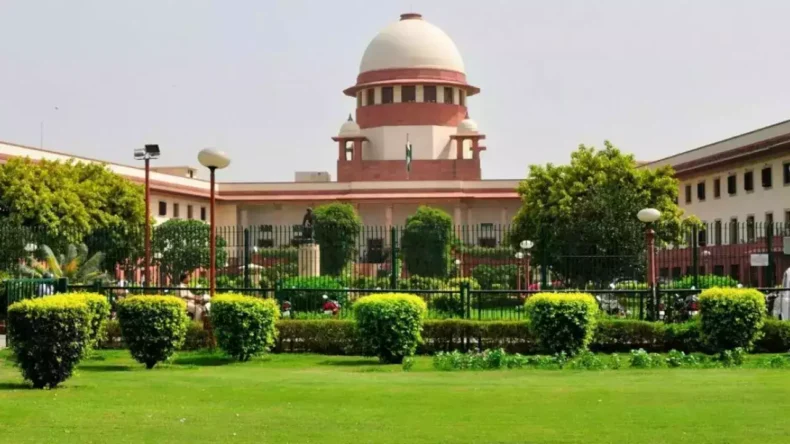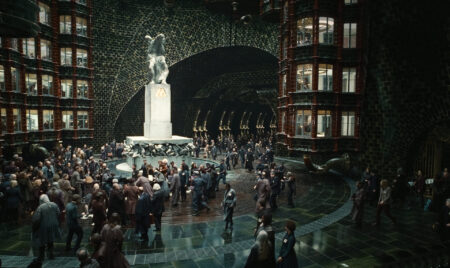The Supreme Court on Friday, 21st July, dismissed a Public Interest Litigation (PIL) seeking the revocation of CFBC clearance given to Om Raut’s film Adipurush. A two-judge bench of the Supreme Court comprising justices S.K. Kaul and Sudhanshu Dhulia dismissed the petition that was filed by lawyer Mamta Rani stating that the film’s depiction of Hindu gods was against the statutory provisions given under the Section 5B of the Cinematograph Act, 1952.
The court stayed all proceedings against the film ongoing in several high courts, as well as issued a notice on the appeal made by the filmmakers. ‘Adipurush’, a film based on the famous epic Ramayana, has been receiving a lot of hate for its dialogues and portrayal of the deities. Petitions before the Allahabad High Court asked for a ban on the movie as it allegedly destroyed the values, characters, and basic structure of the Ramayana while hurting Hindu sentiments. Hearing the separate petitions of Kuldeep Tiwari and Naveen Dhawan seeking this ban, the Allahabad HC instructed the filmmakers on 30th June to appear before the court on July 27.
While asking the director, the producer, and the dialogue writer of the film to give an appearance before the court, the High Court directed the government to make a committee to give its view regarding the film. On top of this, it also asked the central government to go over its decision of giving clearance to the movie again. The Supreme Court issued a notice in the filmmakers’ plea against the Allahabad High Court’s directions and a separate notice on the transfer petition filed by the makers.

Although the film received a negative response from all segments of the audience, the apex court flagged the issue of extreme intolerance among the viewers and stated the need for a certain level of lenience towards the creative representations of artists. Justice Kaul, renowned for delivering landmark judgments safeguarding artists’ rights in various cases, such as M.F. Husain and Perumal Murugan, expressed his viewpoint on this matter questioning the need to entertain certain cases under Article 32, which grants citizens the right to seek constitutional remedies from the Supreme Court. Justice Kaul highlighted that the Cinematography Act already provides a method to obtain certification for films, and he expressed concern about the growing sensitivity surrounding creative works.
In his statement, Justice Kaul emphasized that not every dispute related to films, books, or paintings should be brought before the Supreme Court for scrutiny. He suggested that the level of tolerance for artistic expression appears to be decreasing, and while some people may genuinely feel hurt by creative works, it is not always appropriate for such matters to be entertained under Article 32.
Article 32 of the Indian Constitution guarantees the right to approach the Supreme Court through appropriate legal procedures to enforce the rights provided in Part III of the Constitution. The Supreme Court has the authority to issue various writs, including habeas corpus, mandamus, prohibition, quo warranto, and certiorari, to uphold the rights enshrined in this part of the Constitution.
According to Justice Kaul, people are in the habit of bringing every small issue before the courts and refuse to provide some liberty to films, books, and artworks. He also said that this issue will not be entertained under Article 32 of the Indian constitution which exists to provide the citizens with the right to seek constitutional remedies. The court ruled that it cannot work based on the sentiments of each individual as it cannot turn into ‘an appellate authority for the censor board’.
Similar petitions have also been filed in the Punjab & Haryana and the Rajasthan high courts seeking a ban on the movie and the quashing of the CFBC certification.













